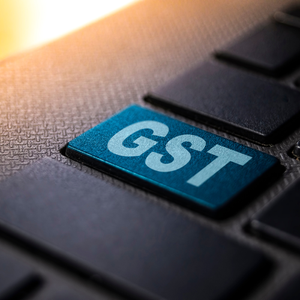Delhi High Court GST Judgment: A Game-Changer for Regulatory Commissions!

The Delhi High Court recently adjudicated on a crucial GST matter in CERC v. The Additional Director Directorate General of GST Intelligence,[i] addressing whether fees collected by the Central Electricity Regulatory Commission (“CERC”) and the Delhi Electricity Regulatory Commission (“DERC”) for their regulatory functions are subject to Goods and Services Tax (“GST”) under the Central Goods and Services Tax Act, 2017 (“CGST Act”) and the Integrated Goods and Services Tax Act, 2017 (“IGST Act”). The case’s resolution holds significant implications for regulatory bodies and public institutions, potentially exempting or including them in the country’s indirect tax framework.
In this article, we have discussed the brief facts of the case, the ruling of the High Court and our views on the same.
Facts
The dispute originated from show cause notices (“SCNs”) issued to CERC and DERC on May 29, 2024, and July 23, 2024, respectively. The notices were based on the premise that the fees collected by these commissions for licensing, tariff determination, and other regulatory functions fall within the ambit of taxable supply of services under the GST regime. The Directorate General of GST Intelligence (“DGGI”) argued that the regulatory fees constitute consideration for services rendered, making them liable to GST.
Both commissions contested this claim, arguing that their functions are statutory and non-commercial in nature. They contended that their fee collections do not constitute a commercial supply of services but are essential for fulfilling their regulatory mandates under the Electricity Act, 2003. Furthermore, they emphasized that the collected fees are deposited in the Public Account of India and do not result in pecuniary benefit, thereby exempting them from GST. Hence, this petition was filed before the High Court to assess the validity of the SCNs.
Ruling of the Delhi High Court
The Delhi High Court, in its judgment, ruled in favour of CERC and DERC, holding that the fees collected for regulatory functions are not liable to GST. Key findings:
- The court rejected the revenue department’s argument that the commissions’ licensing, tariff determination, and other functions constituted a supply of services under Section 7 of CGST Act. The provision lays down three essential elements for any activity to be deemed as “supply” under the GST regime: Supply of goods or services, consideration for that supply, and the supply should be in furtherance of business.
- The court determined that CERC and DERC, while performing their statutory duties, are not engaged in business as defined under Section 2(17) of the CGST Act. It emphasized that their role is to regulate the power sector and enforce compliance with electricity laws rather than engage in commercial transactions. This role would not fit within the ambit of “any similar activity” akin to trade, commerce, or manufacture as provided in Section 2(17) of the CGST Act.
- The court highlighted that the fees collected by CERC and DERC do not fit within the definition of “consideration” under Section 2(31) of the CGST Act. The fees are statutory levies, not payments made for inducement of supply of goods/ services.
- Further, the court observed that despite the definition of “service” under Section 2(102) of the CGST Act being widely worded as “anything other than goods”, it has to be read with the exclusions provided in Schedule III of the CGST Act. The second entry to Schedule III of the CGST Act specifically excludes services provided by a court or tribunal from GST liability. Given that CERC and DERC possess quasi-judicial powers similar to tribunals (as held in PTC India Ltd. v. Central Electricity Regulatory Commission), their functions were deemed exempt from GST under this provision. Hence, the essentials of “supply” under Section 7 of the CGST Act were not met in this case.
Our Thoughts
The judgment sets a significant precedent for regulatory bodies, public institutions, and government commissions across India. The ruling distinguishes between commissions or other government bodies carrying out regulatory and adjudicatory functions, further clarifying that commissions carrying out adjudicatory function are not liable to pay GST. Whether this ruling will be appealed or influence future tax policies and legislative amendments remains to be seen, but it undoubtedly establishes a significant precedent for taxation and governance in India.
The information contained in this document is not legal advice or legal opinion. The contents recorded in the said document are for informational purposes only and should not be used for commercial purposes. Acuity Law LLP disclaims all liability to any person for any loss or damage caused by errors or omissions, whether arising from negligence, accident, or any other cause.
[i] W.P. (C) 10680/2024 & W.P. (C) 14723/2024.



